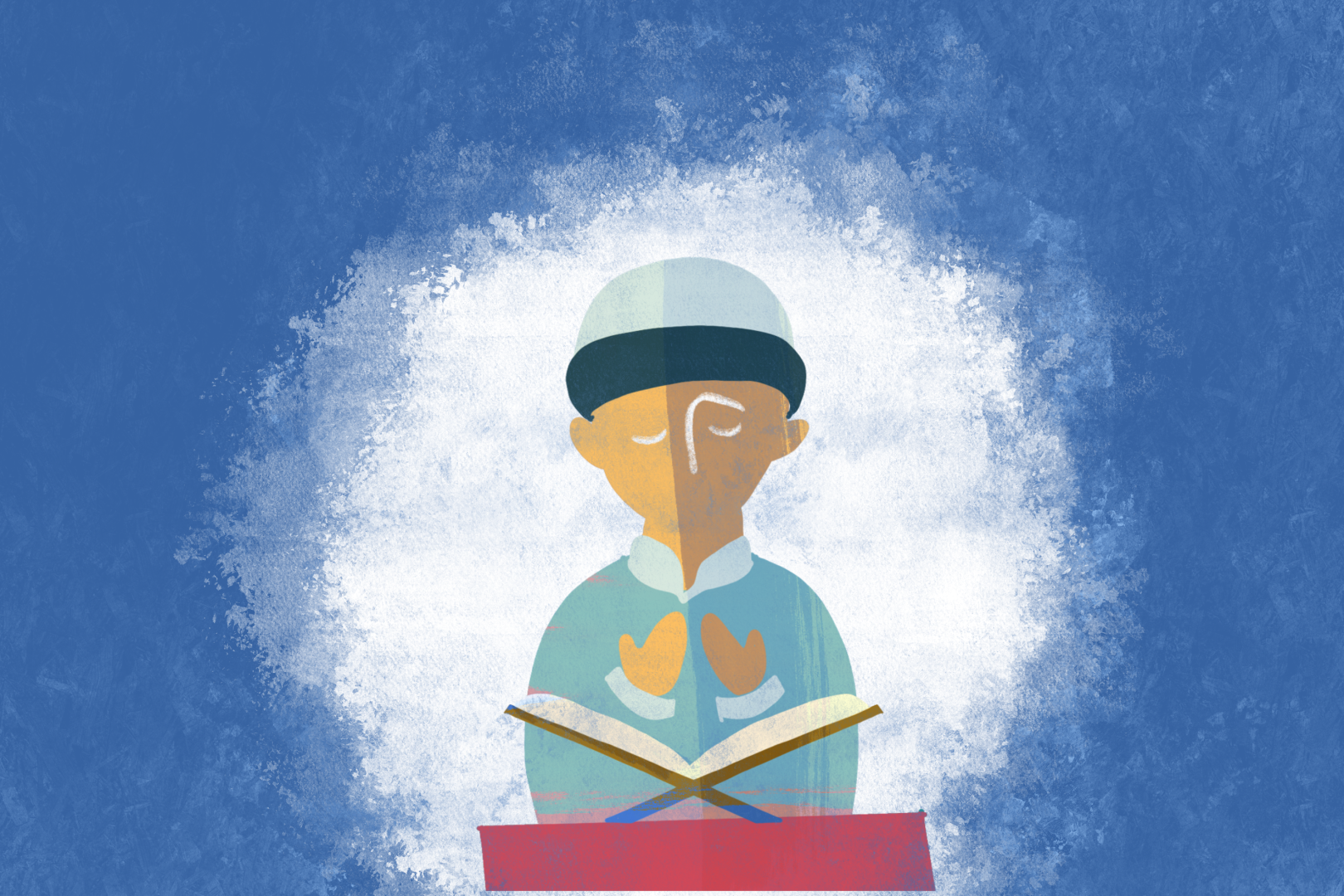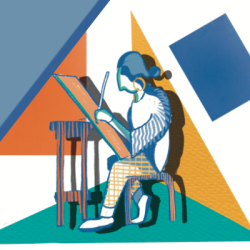Exploring Artistic Horizons: TPH's Inaugural Digital Art Session

On The Verge of Faith: Are the Youth in Kurdistan Region More Religious or Secular?
By: Shwan Fraidoon Abdulqader
“If there is no God or religion, we’ll start killing, stealing, and drinking this very second,” said Anonymous.
Since religion is always a hot subject in the Middle East, Kurds frequently find themselves excluded from the international perception of Islam. The Kurds tend to be seen by the West as fairly secular in comparison to other Muslim nations, and the Kurdistan Region is typically referred to in the media as a "haven for secularism." The true picture, nevertheless, is remarkably distinct from what is frequently observed and thought about this overlooked nation.
Because the majority of Kurds in the Kurdistan Region are notably religious, the youth are considerably split up. There are young Kurds who, like every other adolescent in most Western nations, embrace a life centered on Western culture and an increasingly prominent phenomenon of speaking English. On the contrary, a substantial percentage of youths in the Kurdistan Region desire religion and, in some instances, embrace extremist ideologies. This arises occasionally as a response to Kurdish politics, which is considered primarily secular but not in the manner that ‘Turkish secularism’ is, which has a history of opposing religion rather than promoting equality before the law.
According to an article published in 2021 by German public state-owned DW (Deutsche Welle), many Kurdish youth are turning to ‘’religious extremism’’. This is associated with the late 2021 demonstrations, of which most protestors were students. These people marched to the streets in the Kurdistan Region, mainly in Sulaymaniyah, to demand the reintroduction of cash stipends which was suspended by the government officials in the year 2014. Throughout the protests, authorities used water cannons, tear gas, as well as bullets to stop the protestors.
It is believed that as a reaction to the social inequality, injustice, and high percentages of unemployment which a substantial number of young people are affected by, many of them decided to leave the country, some even risking their lives by taking the most hazardous ways to Europe, or join radical and/or fundamental religious groups, usually Salafism.
To better understand, one must know that the vast majority of Kurdish Muslims adhere to the Sunni sect, and Salafists, or ultraconservative Sunni clerics’ roots in the region date back to the 50s of the last century. The term "salaf" means "ancestors," and for that reason, Salafists persuade obedience towards what they respect as the core values of Islam. Salafist preachers are typically strengthened in Saudi Arabia or other countries in the Gulf wherein an identical orthodoxy exists. Once they headed back to the Kurdistan Region, they introduced Salafist institutions as well as mosques, which were provided with funds by the aforementioned nations. Kurdish Salafists are consistently prominent on social networking sites, and a number have even established independent religious programming on television.
Sadiq Malazada, a sociology lecturer at Soran University who has researched devotion amongst young people in the region claimed, "The authorities in the region support Salafism to weaken Islamic parties, but this is a mistake," he told DW, saying that religious fundamentalism has "ruined the tolerant and open Kurdish culture" and that the conservative preachers are taking advantage of the region's numerous difficulties as well as local youths.
Muslih Irwani, also a sociologist and the director of Erbil's Public Policy Institute, talked about a "new wave of return to Islam" within the younger demographic. He highlighted that it appeared in two varieties. One was more customary and neutral in terms of politics. He said that the latter way appears to be more radical and is more appealing to those who have been negatively affected by Kurdistan's political circumstances.
Another crucial phenomenon is the increasing number of ceremonies for girls who started wearing the Islamic headscarf or Hijab in recent years also plays a sign of religious conservatism in the region. This annual program goes by the name “Golden Crown Ceremony” and the last time it was held, which was in 2023, nearly 3000 girls attended who wore the headscarf after attending courses. The events were organized by the Kurdistan Student Development Union which is associated with the Islamic Union of Kurdistan.
Despite all of this, there are plenty of secular, even atheist, young people in the Kurdistan Region. A majority of these individuals attend or have graduated from English-speaking schools, universities, and educational institutions. Many of them also tend to come from financially secure and/or wealthy households. Some of these people might not be ethnically Kurdish but are from the Kurdistan Region.
As it appears, there is no solid answer to the question in the title. For that reason, I decided to conduct personal interviews with a few young people that I know. The people I asked came from different ethnic and religious backgrounds which I thought was interesting as it helped the article gain a stronger base. All interviewees live In Erbil.
First, I started asking a very close friend whose name is Aya Yaqoob, a 21-year-old girl from Erbil who doesn’t consider herself a religious person. “Mainly because I do not resonate with the general beliefs associated with religion, I find it difficult to trust. A good lot of things ‘explained’ in religion make no sense to me” she said. When asked whether she believes that the younger generation is more religious or secular, she said “more secular, as they are not afraid of asking the questions our ancestors did not ask.” She also claims that religion has contributed to society in both negative and positive ways but mostly negative as religion created restraints in many aspects of the region, especially for women.
My next interview was with my friend Sava Sardar, who comes from a catholic Chaldean family and was born in Ankawa, Erbil’s Christian district. “I do consider myself as a religious person because I have faith in God and Jesus, I believe in them, and I believe they exist. I believe in heaven and hell”. When I asked Sava whether she thinks the young people are religious or secular, she said “In church, I do see a lot of people that I know at the same age as me” meaning that she believes that her Christian peers are mostly religious.
later, I interviewed another friend of mine. Mahmoud Wirya, 21, comes from a Turkman family. He considers himself a religious person as he says he follows the main principles of Islam because he feels content and satisfied when he fulfills his religious duties. Mahmoud thinks that the younger generation has enough information about religion but to some extent, they do not believe in it or follow it completely as they are not fully convinced. He said that the older generation did not possess much knowledge regarding religion. However, they had full faith in it and managed to fulfill their religious duties. He also said that he thinks that religion has a positive impact on Kurdish society as most of the country’s laws are based on religion, therefore, acting as a paramount element and providing a sense of hospitality and conviviality in general, especially towards foreigners who visit the region, all these which he associated with the high religiosity of the Kurdish people. Mahmoud also claimed that religion has made trust and confidence in each other a very common notion amongst Kurdish people.
Lastly, I interviewed Ameer Hameed, who is also 21 years old. When asked whether he is religious or not, he replied “I don’t consider myself to be a religious person since religion to me impedes an authentic life and a critical and skeptical mind”. Ameer believes that with globalization and people becoming more educated and exposed to different viewpoints and opinions on the internet and the media, the youth have become more lenient towards diversity and, hence more secular. However, he also believes that there is a sort of resistance within the younger generation of KRG “because of the influence the older generations have on them, precisely in schools, mosques, and their homes.”
Ameer also believes that religion has both negative and positive impacts on society. On the positive side, it plays a major role in keeping the population in check morally. “I’ve had religious friends who stated that if there is no God or religion ‘we’ll start killing, stealing, and drinking this very second’” said Ameer. On the negative side, its teaching has reinforced some reactionary beliefs and rituals that resulted in the oppression of, for example, women and less represented groups in the region. “You see people quoting the Quran or Hadith to justify some inhumane action” claimed Ameer.
References
- Schaer, C. (2021) Will Iraqi Kurds turn to religious extremism? – DW – 11/27/2021, dw.com. Available at: https://www.dw.com/en/discontent-in-iraqi-kurdistan/a-59949609 (Accessed: 16 May 2023).
- World Bulletin (2023) Ceremony for 3,000 young girls who wear hijab, World Bulletin / News From Turkey and Islamic World. Available at: https://www.worldbulletin.net/islamic-world/ceremony-for-3000-young-girls-who-wear-hijab-h215738.html (Accessed: 16 May 2023).
